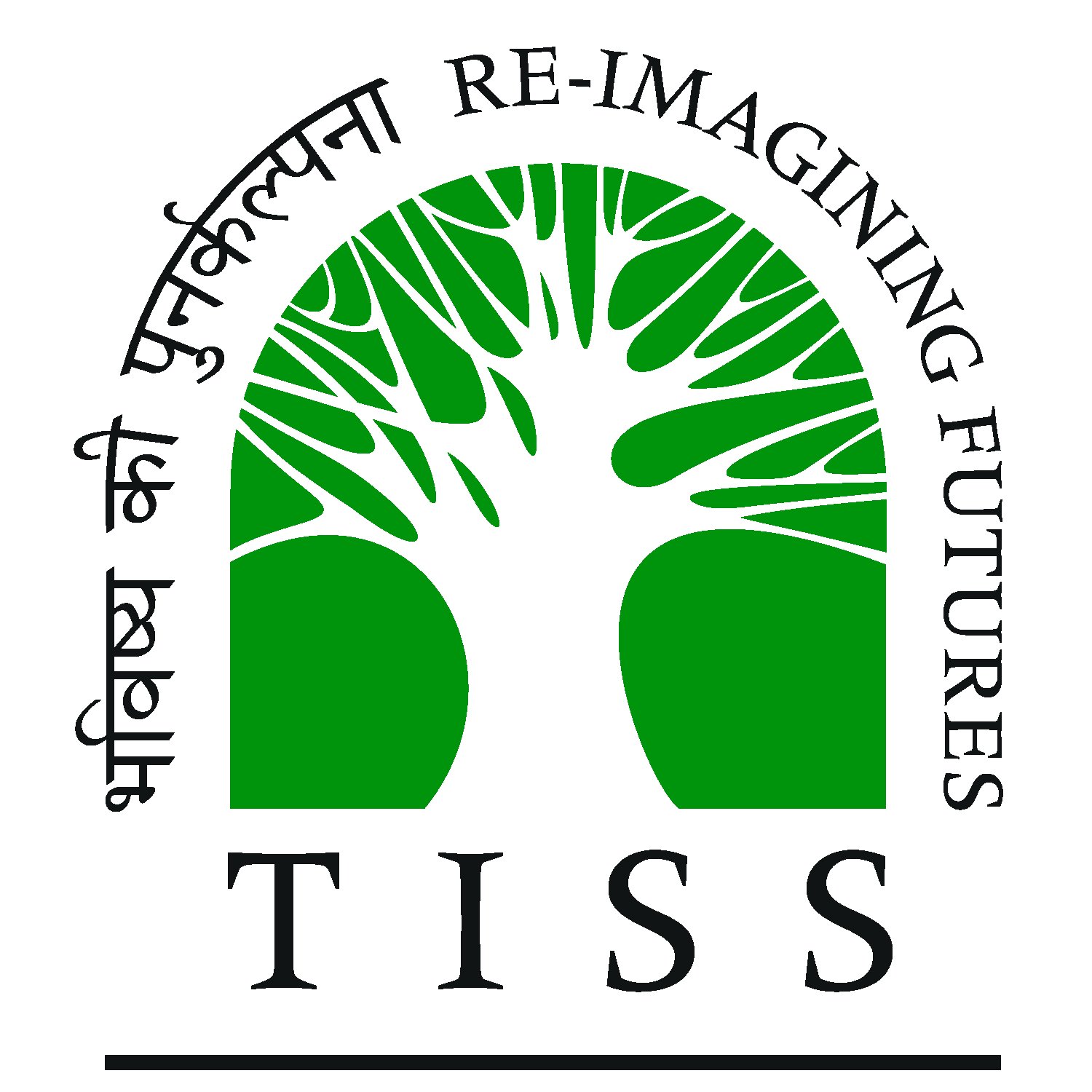SMCS in press
















Inuth |December 2017
Anumeha Saxena reports on SMCS films around Mumbai’s streets.
The Conversation | December 2017
Tisser des fils fragiles : quand des musiciens indiens célèbrent la diversité face à l’intolérance
DNA | December 2017
Delicately woven documentary
The Conversation | November 2017
A Delicate Weave: folk singers from Western India celebrate diversity in the face of intolerance
Indian Express | November 2017
A delicate weave of the musical traditions of communities from across Kutch
The Hindu | October 2017
A delicately woven documentary
The Scroll |November 2017
In ‘A Delicate Weave’, musicians from Kutch stitch together a message of love and peace
IeMalayalam | October 2017
Felicitation by Mammootty
Times of India | October 2017
A delicately woven musical journey
Indian Express | October 2017
Songs of the subaltern
The Hindu |October 2017
Documenting the social fabric of Kutch
Malayala Manorama | October 2017
Indian documentary – An orphan
Mathrubhumi | October 2017
Felicitation and Screening
The Hindu | October 2017
Tracing a musical journey
Mathrubhumi | October 2017
Post – Screening
Scroll.in | Feburary, 2016
A review of City’s Edge by Shubra Dixit
Read here
Scroll.in | January, 2016
"What happens when the crime show ‘CID’ is recreated in one of Mumbai’s poorest areas A documentary highlights the folks behind ‘Govandi CID’, a local spin-off that addresses the issues facing the Shivaji Nagar slum cluster." Nandini Ramnath writes about SMCS film.
Read here
The Hindu | January, 2016
"A seminar devoted to digital content will examine the use of technologies by local movements, filmmakers and grassroots initiatives." Chintan Girish Modi reports on DigiNaka
Read here
The Hindu | December, 2015
In search of shelter by Jayant Sriram
Read here
Senses of Cinema | September, 2015
Film scholars Anne Rutherford and Laleen Jayemanne interview Anjali Monteiro and K.P. Jayasankar on their documentary praxis–Sufi poets, story-telling as performance and non-violence in Indian documentary film.
Senses of Cinema | September, 2015
Shweta Kishore writes on the SMCS Film YCP 1997: On Whose Behalf? Ethics in Indian Social Documentary Film and Practice.
Daily Pao, Mumbai | August 6, 2015
Daily Pao writes about ‘Giran Mumbai,’ a website revisiting the mill lands of Mumbai and its people created by SMCS.
Hindustan Times, Mumbai | August 6, 2015
Hinduatan Times writes about ‘Giran Mumbai,’ a website revisiting the mill lands of Mumbai and its people created by SMCS.
Mumbai Mirror, Mumbai | July 12, 2015
Mumbai Mirror writes about ‘Giran Mumbai,’ a website revisiting the mill lands of Mumbai and its people created by SMCS.
Indian Express, Mumbai | July 11, 2015
Indian Express writes about ‘Giran Mumbai,’ a website revisiting the mill lands of Mumbai and its people. Read here | PDF
Maharashtra Times, Mumbai | Apr 15, 2015
Maharashtra Times writes about ‘Castemopolitan Mumbai,’ a series of films on caste made by students of the 2013-15 batch of the MA program in Media and Cultural Studies at SMCS.
Mid-Day, Mumbai | Apr 7, 2015
Suprita Mitter writes about ‘Govandi CID,’ a fictional show made by local youth, and mentions the making of a documentary film on the show by the students of the 2013-15 batch of the MA program in Media and Cultural Studies at SMCS.
Scroll.in | Mar 31, 2015
Scroll features ‘Daane Daane Pe,’ a film on street food and parochialism made by the students of the 2011-13 batch of the MA program in Media and Cultural Studies at SMCS.
Hindustan Times, Mumbai | Mar 29, 2015
Kanika Sharma writes about ‘Castemopolitan Mumbai,’ a series of films on caste made by students of the 2013-15 batch of the MA program in Media and Cultural Studies at SMCS.
The Asian Age, Mumbai | Feb 18, 2015
The Asian Age writes about ‘Remembering 1992,’ an online resource created by SMCS that seeks to revisit and remember the violence that the city of Bombay/Mumbai experienced in December 1992 and January 1993.
The Times of India, Chennai | Jan 26, 2015
MT Saju speaks to Anjali Monteiro and K P Jayasankar about some of their most-feted films, and has them reflecting on the state of documentary filmmaking in India.
Mid-Day, Mumbai | Jan 2, 2015
Hassan Kamal writes about Cut.In, the national annual students’ film festival organized by the School.
The Indian Express | Dec 29, 2014
The Indian Express writes about ‘Remembering 1992.’
Kafila | Dec 19, 2014
Kafila features ‘Remembering 1992.’
Scroll.in | Dec 13, 2014
Shilpa Phadke and Sameera Khan speak about the need to eschew paternalism and call for the strengthening of women’s rights to be in public spaces.
Scroll.in | Dec 9, 2014
A Public Service Announcement (PSA) film made by SMCS students is featured for its hard-hitting commentary on women’s safety in public spaces.
DNA, Mumbai | Sep 11, 2014
Shilpa Phadke suggests that anxieties about love jihad exist along a continuum which encompasses a range of fears in regard to the potential outcomes of women’s mobility and exercise of agency of any kind, particularly sexual agency.
Al Jazeera America | Aug 25, 2014
Shilpa Phadke argues that sex education must be tied to an understanding of not just violence and coercion but also consent, pleasure and desire.
Al Jazeera America | Jun 17, 2014
Shilpa Phadke speaks about how the real challenge is to ensure that women have access to public spaces even after dark, whether they’re toilets in tiny villages or streets in big cities.
DNA, Mumbai | Apr 25, 2014
Shilpa Phadke defends the right of the St.Xavier’s College principal to voice his opinion against fascism and lop-sided development.
DNA, Mumbai| Apr 15, 2014
Shilpa Phadke takes a feminist position on the question of death penalty for rape, arguing that awarding the death penalty to lower-class men in no way addresses the rape culture in India.
Mid-Day, Mumbai | Apr 2, 2014
Dhara Vora writes about the latest edition of ‘Footnotes’, the annual web magazine by MCS students.
DNA, Mumbai| Mar 6, 2014
Shilpa Phadke takes up the issue of sexism at work in the wake of the ongoing Tejpal and Ganguly cases, which have created the space for an extended conversation on the ways in which patriarchy functions in the workplace.
Satyamev Jayate, Star Plus | Mar 4, 2014
Shilpa Phadke talks about why it is okay for women to be out at 2 a.m., in the 2nd season of Satyamev Jayate.
The Indian Express, Mumbai| Dec 15, 2013
Shilpa Phadke along with visiting faculty Sameera Khan talks about women’s right to public spaces, one year after the Delhi gang rape.
SBS, Australia | Nov 14, 2013
Anjali Monteiro and KP Jayasankar are two of India’s most experienced doco makers. They’re presenting 9 titles (including one of their own, “So Heddan, So Hoddan”) that addresses India’s marginal communities.
The Culture Trip | Oct 26, 2013
Anjali Monteiro and K.P. Jayasankar are professors at the Mumbai’s Tata Institute of Social Sciences and their filmography is renowned for investigating the divide between �?self’ and �?the other’. Between themselves they have won reels of awards and their films have been presented at prestigious venues and festivals around the world. Monteiro and Jaysankar’s Do Din Ka Mela (A Two Day Fair) will also be screened at Aperture.
Indian Link | Oct 2, 2013
When it comes to Indian cinema, hardly anyone mentions or knows about documentaries, the poor cousin of feature films. So it was a rewarding experience to watch three award winning Indian documentaries made by KP Jayasankar and Anjali Monteiro at Parramasala 2013 from October 5-7 at the Riverside Theatre in Parramatta.
The Age | Oct 2, 2013
Three Indian documentaries by acclaimed filmmakers Anjali Monteiro and K.P. Jayasankar are screening at Sydney’s Parramasala festival over the long weekend: Our Family, abut a transgendered community in Tamil Nadu; Like Here Like There, on Fakirani Jat musicians in Kachchh; and The Bond, about community committees in Mumbai.
FILM INK | Oct 2, 2013
ICE is proudly presenting three documentary screenings in Raffertys, Riverside Theatres, each followed by live Q&A; sessions with award-winning Indian filmmakers Anjali Monteiro and K.P. Jayasankar. These critically acclaimed documentaries by Indian filmmakers Anjali Monteiro and K.P. Jayasankar, Professors at the Tata Institute of Social Sciences, Mumbai, take an intimate look at spirituality, sexuality, family and tradition.
ART NEWS PORTAL | Sep 23, 2013
Screening on the closing night of Parramasala, Naata follows two friends working with neighbourhood peace committees in Dharavi, Mumbai, Asia’s largest slum. Through the power of community collaboration and conflict resolution strategies, the film is a testament to the ability of individuals to work together to change the fate of a community.
RealTime Arts | Sep 18, 2013
The prominent Indian documentary filmmaker pair Anjali Monteiro and KP Jayasankar, acclaimed around the world for their films about marginalised peoples, are guests of ICE and Parramasala, showing one of their best known films, Naata (2003), and a recent one, Like Here Like There (So Heddan So Hoddan; 2011).
DNA, Mumbai | Aug 27, 2013
On the promenades people can now eat and drink. There are several dustbins for them. Couples hang out there and the police have been ordered not to disturb them unless they seem to be in the middle of a physical flight.
Mid-Day, Mumbai | Jul 28, 2013
As a mother of a three-year-old girl, Shilpa Phadke, assistant professor at Tata Institute of Social Sciences (TISS) obviously deals with hectic drop-offs to playschool and her daughter’s vehement defence of her favourite cartoon show (of dubious merit, according to Phadke).
The Sunday Gurdian | Jul 27, 2013
“My own struggle to be a feminist mother inspired the project. My conversations with friends and colleagues suggested that these were complex dilemmas that many of us confronted and negotiated, and were worth looking more closely at.”
Indian Express | Jul 16, 2013
“We wanted to tell the story of a cinema hall that for 75 years has been showing mainly Marathi films,” says Avadhoot Khanolkar, one of the members of the group
Indian Express | Jul 7, 2013
Selected excerpts from Anjali Monteiro and KP Jayasankar’s work Saacha (The Loom, 2001) looks at Dalit poet Narayan Surve’s poetry as an alternative voice of political representation
The Hindu | Jul 5, 2013
Anjali Monteiro and K.P. Jayasankar’s work also falls in line. The excerpts taken from the duo’s documentary film “Saacha” (The Loom), highlights the poetry of the critically acclaimed Dalit poet Narayan Surve, as he recounts personal memories of the city of Mumbai, the birth place of the Indian textile industry and the industrial working class.
Mid-Day | Jun 24, 2013
Explore the Kachchi community that is striving to preserve the legacy of the Sufi poet Shah Abdul Latif Bhitai, which celebrates diversity and resists cultural politics, through the lens of Anjali Monteiro and KP Jayashankar.
Web Wire | Jun 17, 2013
Poetry and song play an integral role in this exhibition and are explored through the work of four documentary and experimental filmmakers.
TOI | May 20, 2013
We had a lot of liberty to make mistakes and keep learning in the process. As students, we could go in the field with a certain sense of ease and look for subjects.
Madurai Messenger | Feb, 2013
Using poetry for their documentaries seems to be their favorite mode of storytelling. I was not very surprised when K.P. Jayasankar revealed with amusement that he wanted to be a painter when he was a teenager. His ability to visualize emotions is obvious throughout the fifty-five minute SheWrite.
in.com | Dec 18, 2012
Twenty years after the riots that shook the ‘Maximum City’ to its core, he has made a film on the aftermath of the riots called ‘Aakhri Panah – The Last Refuge’ with three other classmates – which has become their own way of remembering the event.
The Hindu | Dec 12, 2012
As teachers of Tata Institute of Social Sciences, Anjali and Jayasankar work with many young people. At present, they are working on a documentary on Farooq Mapkar, a bank peon, who is singlehandedly fighting the case against police firing in Masjid during the 1992-93 Bombay communal riots.
IBNlive | Dec 12, 2012
The School of Media and Cultural Studies (SMCS), Tata Institute of Social Sciences, Mumbai is organising the 5th Cut.In Student Film Festival on Dec 15 and 16.
TOI | Dec 8, 2012
There is a huge gap between documentary films and its audience, says Anjali Monteiro, professor and dean, School of Media and Cultural Studies, Tata Institute of Social Sciences, Mumbai.
DNA | Feb 12, 2012
Through the documentary, the filmmaker duo want to explore the paradox in the lives of the community. The Fakirani Jatts are somewhere in the middle of their glorious past and a present they are coming to terms with. But there is a marginalisation of their tradition, which is apparent everywhere.
Timeout| Sept 14, 2012
The first few minutes of Breakin’ Mumbai are filled with swagger, an attribute easily associated with b-boying or breaking. Fort Minor’s “Remember the Name” plays in the background as acrobatic moves from the dance are juxtaposed with the song’s attitude-laden lyrics, “Yeah, for those of you that want to know what we’re all about. It’s like this y’all. C’mon.
Midday | Jun 17, 2012
The documentary, called Breakin’ Mumbai, won the best film award of the year and was screened at the Clapstick International Student Film Festival at SRFTI Kolkata last week.
The Hindu | Aug 25, 2011
For the duo who have won 22 national and international awards for their films, an integration of their academic and filmmaking energies translate into meaningful journeys as documentary filmmakers, researchers on media consumption, marketing and audience responses, as well.
The Hindu | Dec 8, 2010
Making one film and moving on to the next is not what they do. Whether documentaries have the power to move people, demand change, inspire and educate is still debatable. But Jayasankar and Anjali believe in going back to the people, the places they film, and stay connected with them.
Tehelka | Mar 20, 2010
“WILL THIS film benefit us, you think?” Mura Lala Fafal asks his brother. “The world will see how little we have and how we embrace our life,” he answers, “if they understand”. KP Jayasankar and Anjali Monteiro’s Two Day Fair is a chronicle of two days in the lives of Mura and his nephew Kanji — musicians, wage labourers and farmers of the Dalit community of Meghwals living along the Indo-Pak border in the Rann of Kutch.
Outlook | Dec 4, 2009
In Our Family, a moving documentary by Anjali Monteiro and K.P. Jayasankar, we get a glimpse in the life of a family of three generations of transgendered female subjects, who have connected themselves to each other through adoption. Aasha, the grandmother, lives in Chennai. Seetha, the daughter, lives with her male partner in Coimbatore. Dhana, Seetha’s adopted daughter, divides her time between her adopted and her birth families. The film, while tremendously optimistic, also narrates the difficulties faced by all protagonists within their homes and lives. It would help to see more of these complex stories in the popular media.
The Hindu | Oct 7, 2002
MAKING A documentary involves more than a creative bent of mind. A passion for the cause and intensity of the subject goes a long way in authenticating the project.

